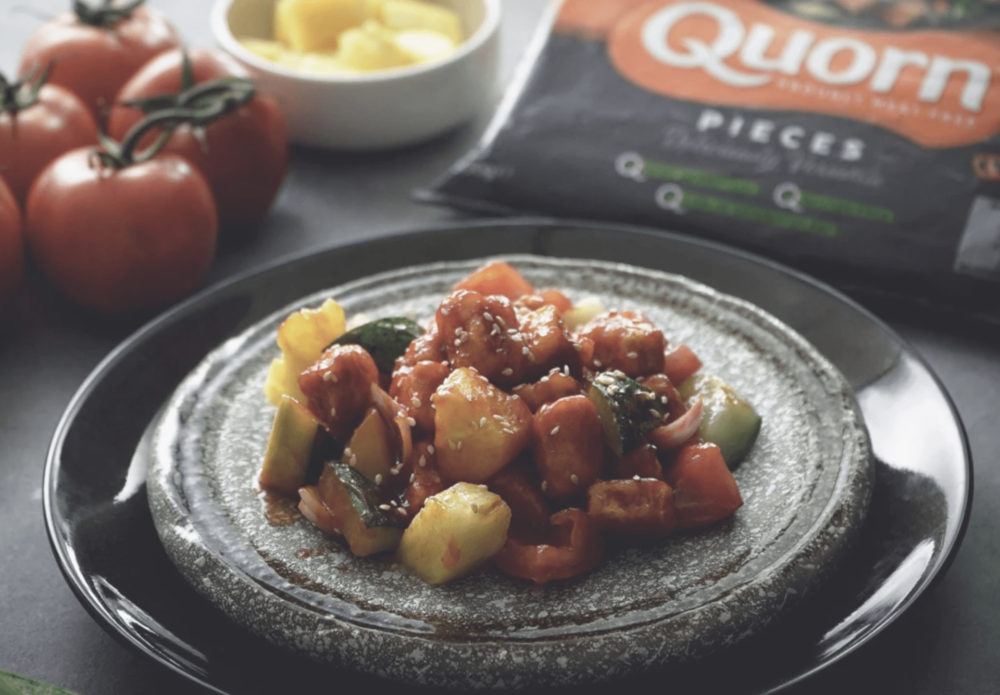Shares in Monde Nissin, which owns a number of food brands including alt-protein pioneer Quorn, have closed 0.15% below their IPO price on the Philippines-based company’s first full day of trading.
The stock ended the day at 13.48 pesos ($0.28) per share, a shade down from its 13.50 peso debut price and after hitting a daily high of 13.56 pesos. The company raised a total of 48.6 billion pesos ($1.02 billion), which — despite being lower than the $1.3 billion it had earlier aimed at — made its oversubscribed share offering the Philippines’ biggest-ever IPO by far.
Several high-profile cornerstone investors backed the IPO prior to today’s market debut, including Singapore sovereign fund GIC, UK-based insurer Prudential‘s Eastspring Investments, and US private equity firm Capital Group.
AIA, Fidelity, and Goldman Sachs also reportedly participated.
A significant portion of the IPO proceeds will go towards global expansion of the Quorn brand. Monde Nissin’s meat alternatives business, comprising Quorn and soy-based range Cauldron Foods, contributed a reported 22% to the group’s FY 2020 net sales of $1.4 billion.
However, 90% of those alt-protein sales were in Europe in 2020, underlining the opportunity — or need — for the company to push into new markets.
Launched in the UK in 1985, Quorn is one of the oldest and most recognized alt-protein brands on the shelf, thanks to its mycoprotein-based meat substitutes derived from yeast fermentation byproducts. It was acquired by Monde Nissin at auction for £550 million ($831 million) in 2015.
According to Bloomberg, Monde Nissin will spend $335 million to grow Quorn’s presence in the US by increasing production and distribute more of the stuff to fast food chains in the country.
It’s also aiming to ramp up production on Quorn’s home soil with the construction of two fermenters and packaging facilities in the UK.
Quorn CEO Marco Bertacca said that the brand’s “ambition is to become the king of alternative chicken globally.” It will focus on further developing its line of faux-chicken products, where it sees more room for maneuver against plant-based protein upstarts like Beyond Meat and Impossible Foods, which opted for beef analogs as their entry point.
“The alternative meat category is going to explode, and we want to get our capacity ready as soon as possible. We need big money for that,” Monde Nissin group CEO Henry Soesanto told Bloomberg.
He also indicated that the company could bring in strategic investors specifically for its Quorn business in the near future.
In an individual capacity, Soesanto has invested in numerous alt-protein ventures in an individual capacity, including Singaporean cell-cultured seafood startup Shiok Meats and plant-based protein maker Karana. He also joined in the $30 million first close for Shanghai-based VC Bits x Bites‘ China-focused fund alongside Temasek and others.
In addition to Quorn and Cauldron, Monde Nissin is also behind Philippine food brands such as Lucky Me! instant noodles — the country’s market leader — SkyFlakes cookies, and Monde baked goods.
Due to its alt-protein component, the company’s float had been touted by many as another major opportunity for investors to cash in on the growing hype around plant-based products, on the back of mega-IPOs by the likes of Beyond Meat and Oatly.
The lack of a first-day price pop, and the seemingly conservative amount raised given earlier pricings, stand in contrast with those debuts: Beyond Meat shares closed 43% up when it began trading on New York’s Nasdaq on May 2, 2019; while Oatly traded at the top of its range on its first day, adding $3 billion to its pre-IPO valuation of $10 billion.
But Oshadhi Kumarasiri, an analyst with LightStream Research publishing on equity insights platform Smartkarma, suggests that market watchers needn’t be disheartened by the stock’s flat opening day performance.
“We [didn’t expect] that Monde Nissin may pop like a similar IPO in Hong Kong or the US – but that may be a good thing, as shares might continue to attract long-only investors and remain less volatile following the IPO,” he says.
“An analysis of past IPOs on the Philippines Stock Exchange shows that very few stocks have had strong openings offering over 50% upside on the first few trading days. However, IPOs in the Philippines have generally performed well after a relatively stable first two months.”
Comment? News tip? Story idea? Email me at [email protected] or find me on LinkedIn and Twitter





